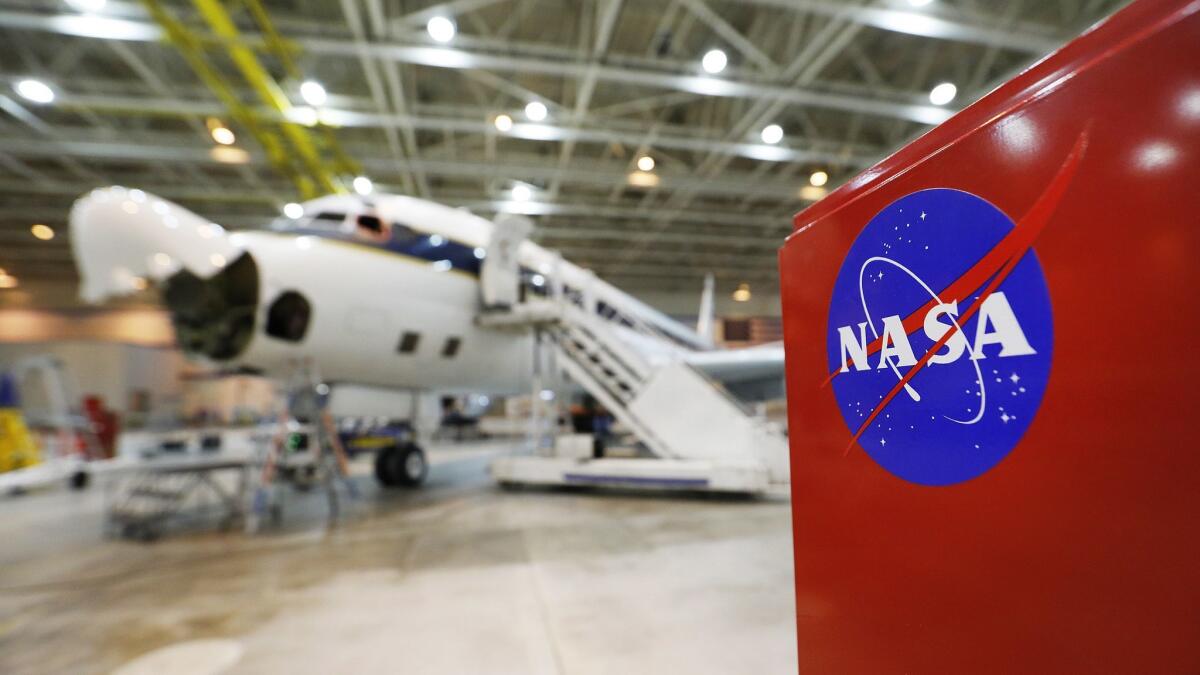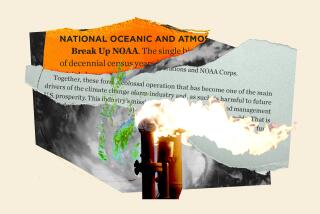EPA refuses to give Congress documents on its rejection of NASA flight after Hurricane Harvey

Congressional Democrats are chiding the U.S. Environmental Protection Agency for thwarting a House committee’s investigation into the agency’s actions during Hurricane Harvey.
The investigation was spurred by a March 5 Los Angeles Times report revealing that officials from the EPA and Texas Commission on Environmental Quality declined a NASA offer to collect air quality data over the Houston area after the hurricane. Emails obtained by The Times showed the EPA was concerned that data collected by the space agency could cause “confusion” and might “overlap” with its own analysis — which was showing only a few isolated spots of concern.
“It appears that EPA acted willfully to frustrate the committee’s constitutionally mandated oversight responsibilities on this issue,” wrote Rep. Eddie Bernice Johnson (D-Texas), chairwoman of the House Committee on Science, Space and Technology; Rep. Lizzie Fletcher (D-Texas), chairwoman of the Subcommittee on the Environment; and Rep. Mikie Sherrill (D-N.J.), chairwoman of the Subcommittee on Investigations and Oversight. “We are disturbed by EPA’s refusals to cooperate with our inquiries and its refusals to explain its actions in the wake of Hurricane Harvey.”
In a letter to EPA Administrator Andrew Wheeler, the congresswomen indicated the agency has not only ignored congressional deadlines to turn over documents but has supplied irrelevant documents when it did offer responses.
“While NASA and TCEQ were able to provide comprehensive responses in an appropriate period of time, EPA missed every deadline and chose to offer irrelevant and unrelated documents,” the chairwomen wrote.
According to the letter, both NASA and TCEQ have turned over documents, many of which included correspondence with the EPA. When the EPA did provide information to Congress, those emails were not included.
“We know that EPA is in possession of documents responsive to our request, because we obtained those documents from other agencies,” they wrote.
In response to The Times’ report and the congressional investigation, EPA officials insisted that they had no authority over the decision and that even if they did, NASA’s offer wouldn’t have provided useful scientific information.
“EPA did not decline NASA’s offer to fly its plane over the Houston area after Hurricane Harvey,” said EPA spokesman John Konkus in March. “The state asked for EPA to assist with air quality monitoring following Hurricane Harvey by deploying our own” air monitoring equipment.
However, documents submitted to Congress show that TCEQ and EPA coordinated their response to turn down the offer and that, according to notes about the event by TCEQ senior air quality scientist Mark Estes, NASA’s flight offer “was scrapped for reasons unrelated to science.”
NASA emails obtained by the Los Angeles Times and Congress show that a space agency official, Barry Lefer, was told by TCEQ Director Michael Honeycutt that state and federal environmental agencies were worried that “NASA will run with this dataset to the press and in the process, make EPA and TCEQ look bad.”
EPA spokesman Michael Abboud said that his agency has been responsive to congressional requests for information and that it has “provided documents to the committee on a rolling basis.”
He said he anticipates his agency will be providing more documents in the future.
The congresswomen, however, said they are ready to take additional steps if they don’t get the information they have requested.
“If necessary, we are prepared to exercise compulsory measures to ensure that congressional oversight functions properly,” they wrote.
More to Read
Get the L.A. Times Politics newsletter
Deeply reported insights into legislation, politics and policy from Sacramento, Washington and beyond. In your inbox three times per week.
You may occasionally receive promotional content from the Los Angeles Times.












